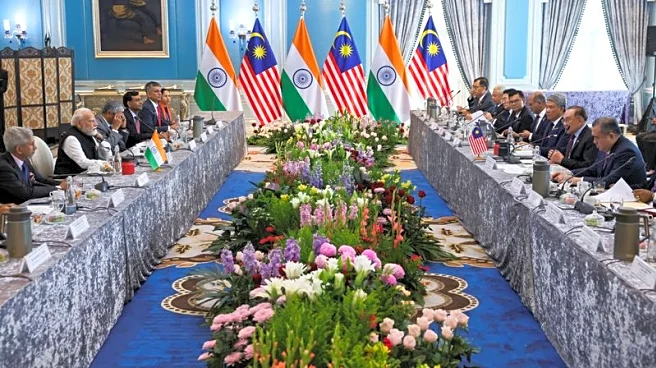What's Happening?
Former Japan Socialist Party Prime Minister Tomiichi Murayama has died at the age of 101. Murayama, who led a coalition government with the Liberal Democratic Party in the mid-1990s, was known for his apology for Japan's World War II aggression. His leadership
was marked by efforts to address significant challenges, including the Great Hanshin Earthquake and the sarin gas attack in Tokyo. Murayama's political career began with his election to the Lower House in 1972, and he became chairman of the Japan Socialist Party in 1993. His contributions to Japanese politics and his focus on 'people-centered politics' have been recognized by current Prime Minister Shigeru Ishiba.
Why It's Important?
Murayama's death marks the passing of a significant figure in Japanese politics, known for his efforts to reconcile Japan's wartime past and his leadership during critical national crises. His apology for Japan's wartime actions was a pivotal moment in Japan's diplomatic relations and efforts to address historical grievances. Murayama's approach to politics, emphasizing the importance of addressing social issues and prioritizing the needs of the people, continues to influence political discourse in Japan. His legacy serves as a reminder of the importance of leadership that prioritizes reconciliation and social welfare.
















